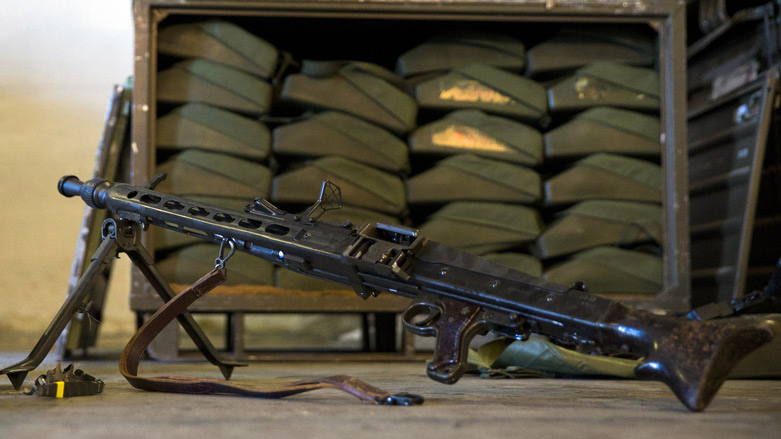Pentagon report vindicates KRG complaints on arms supplies

For the past two years—since the US-led campaign against the Islamic State (IS) began—Kurdish officials have complained that the Peshmerga have not received adequate arms supplies.
Last week, the Pentagon’s Inspector General (IG) issued a report that essentially says the complaints of the Kurdistan Regional Government (KRG) officials were justified.
The IG report, prepared over the period from September 2015 through December 2016, explains that the US was supposed to arm two Peshmerga brigades—4,000 fighters. However, at the time that the IG’s field work ended, in December 2015, little of that equipment had reached Erbil.
In March 2015, KRG President Masoud Barzani told America’s authoritative PBS Newshour, “To this present moment, we have the same view as in the past on arming and equipping the Peshmerga forces with the right weapons. It’s not to the standard we want.”
The Pentagon report confirms that President Barzani was quite justified in that complaint.
In fact, the US Army did not even know where the equipment meant for the Peshmerga was. Two US commands said that the equipment was in Taji, a big army base north of Baghdad; a third said it was in Kuwait; and a fourth suggested the equipment was partly in Kuwait and partly in Erbil.
The IG report does not say whether that material has yet been delivered. A Military Times report suggests this remains a problem. However, in late February 2016, the US Army extended the Train and Equip program that it was conducting for the Iraqi Army to the Kurdistan Region. It began working with two Peshmerga brigades. Probably, the extension of the army’s program was a response to the IG report.
The IG report speaks very highly of the Peshmerga and compares them favorably to the Iraqi Army and Sunni tribal forces. The outgoing US commander of coalition forces in Iraq said in August 2016, “The Peshmerga have proven that they can fight and defeat the enemy with really a fairly light touch from us. . . . In the vast majority of the battle space, they’re on their own.”
By comparison, an earlier IG report, published in 2015, on the US training of the Iraqi Army noted numerous problems. They included the Iraqis’ refusal to allow US advisors into some warehouses. Consequently, US authorities had an incomplete picture of equipment and supplies under the Iraqis’ control. Nor could they be sure that such supplies were not secretly distributed to unauthorized parties, such as the Shiite militias.
In truth, US authorities could not even be confident that US arms were not being siphoned off by corrupt Iraqi officials and sold to IS.
The 2015 report also noted Baghdad’s abysmal treatment of Iraqi troops. Some soldiers suffered “terrible living conditions,” with no running water or power and as many as 14 men crammed into housing units meant for two to four persons.
Little wonder that the Iraqi Army collapsed when confronted by IS!
Of course, Erbil treats Kurdish forces far better. The Peshmerga are, in part, a citizen army, and the Kurdish leadership was once Peshmerga themselves.
Kurdish Security Forces (KSF) were also more reliable than other local forces, including the Iraqi Army. “The KSF vetting process proceeded without the difficulties CJFLCC-OIR [the coalition’s land component] faced when vetting the Iraqi Army and [Sunni] Tribal Resistance Forces,” the IG report explains. “Neither CJFLCC-OIR, nor Department of State, found any problem in vetting KSF personnel.”
President Barack Obama was long reluctant to acknowledge the IS threat and send US troops back to Iraq to confront it. One consequence was that the US campaign against IS was under-resourced. A shortage of soldiers led US commanders to focus on training the Iraqi Army while leaving the task of supporting the Peshmerga largely to European members of the coalition. No one country is entirely responsible for this arrangement, and it has not produced optimal support for Kurdish forces. KRG officials continue to complain of a shortage of military supplies.
President-elect Donald Trump has identified IS as the biggest threat to the US. He has also expressed his genuine appreciation of the effectiveness of the Peshmerga in their fight against IS. Hopefully, the Trump administration will be more prepared to provide more support to the Peshmerga and to provide that support directly. The IG report certainly makes a strong case for doing so.
Editing by Delovan Barwari
